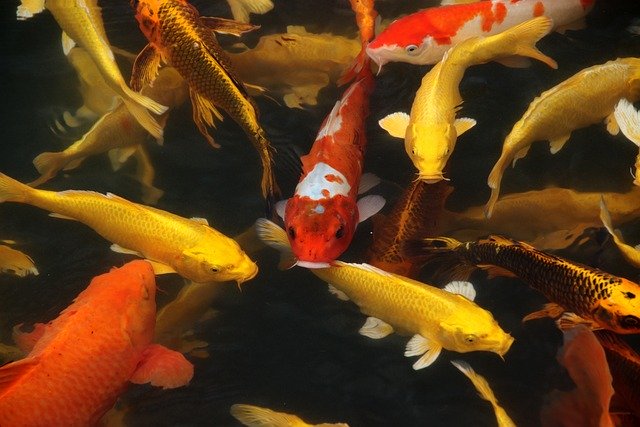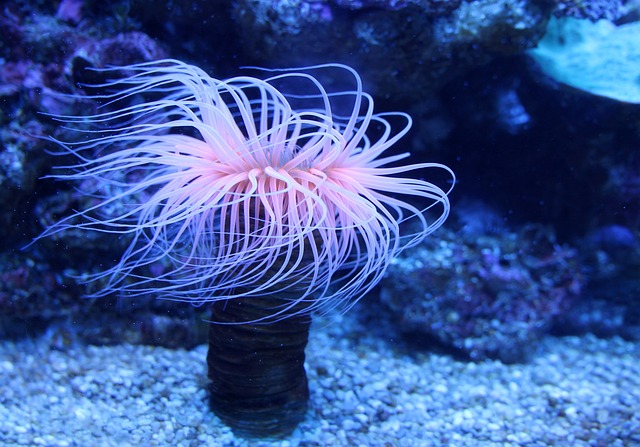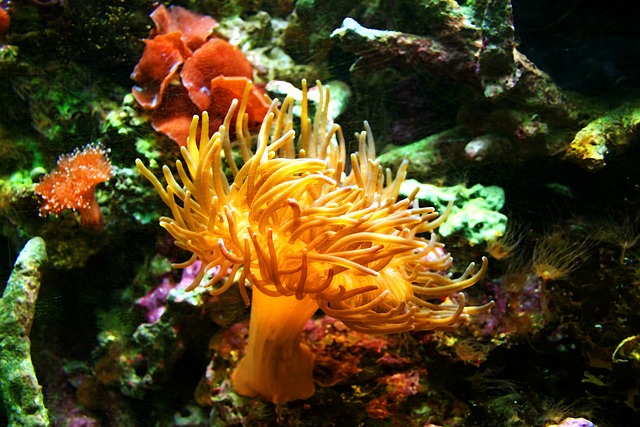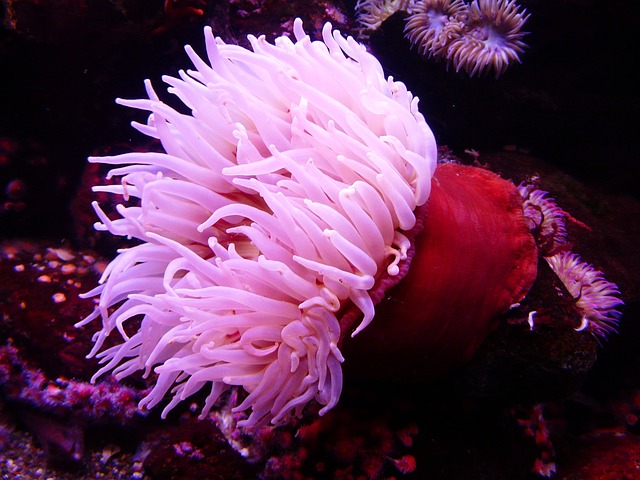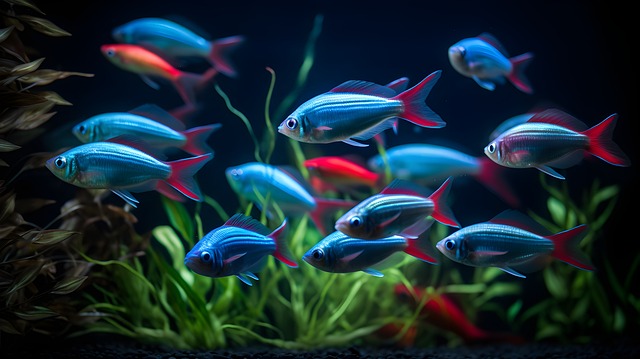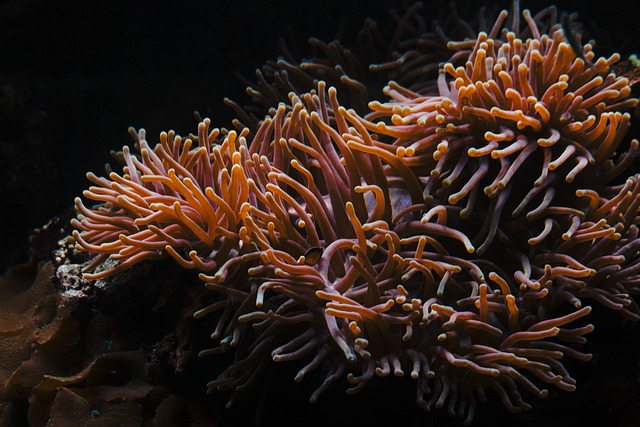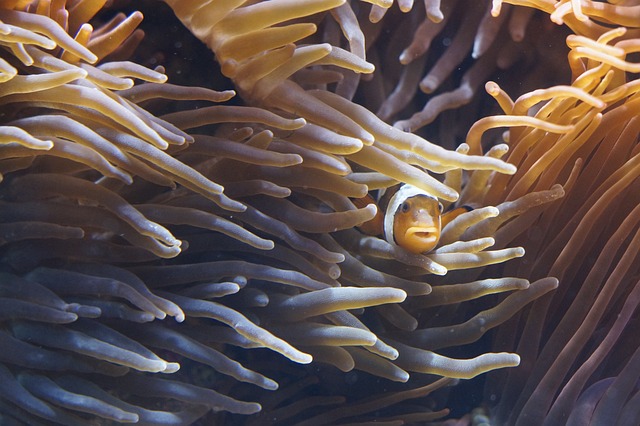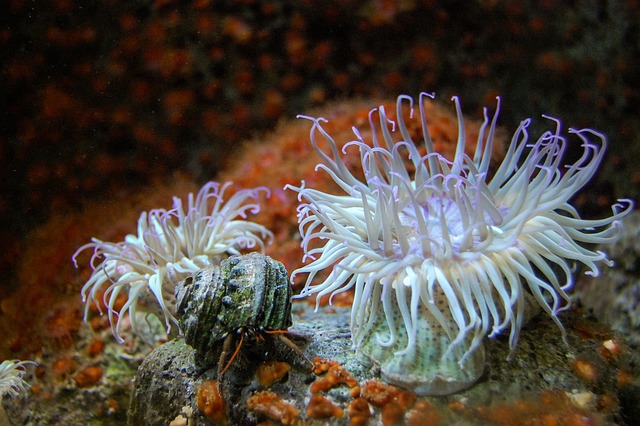Koi fish are a popular and beautiful addition to many backyard ponds. They are known for their vibrant colors and graceful swimming patterns. However, many pond owners wonder if their koi fish will eat mosquito fish. Mosquito fish are often introduced into ponds as a natural control of mosquito populations.
The answer to whether or not koi fish will eat mosquito fish is not straightforward. While koi fish are omnivores and will eat various foods, including small fish, they may not necessarily target mosquito fish specifically.
Koi fish may not even be able to catch mosquito fish, as they are known for their agility and quick movements.
Koi Diet
What Do Koi Eat?
Koi are omnivorous fish and can eat a wide variety of foods. Their diet can include both plant and animal matter. In the wild, koi feed on insects, crustaceans, and small fish.
They also consume algae, aquatic plants, and other vegetation.
In captivity, koi can be fed various commercial fish food, including pellets, flakes, and freeze-dried foods. They can also be fed live or frozen foods such as brine shrimp, bloodworms, and krill.
Koi owners can supplement their diet with fruits and vegetables such as lettuce, peas, and watermelon.
Do Koi Eat Mosquito Fish?
Yes, koi can eat mosquito fish. Mosquito fish are small, freshwater fish commonly used for mosquito control. They are often introduced into ponds and other bodies of water to eat mosquito larvae.
Koi are opportunistic feeders and will eat mosquito fish if they are available. However, koi should not rely solely on mosquito fish as a food source.
Mosquito fish are not nutritionally balanced and do not provide all the nutrients that koi need to thrive.
In addition, introducing mosquito fish into a koi pond can pose a risk to the koi. Mosquito fish can carry diseases and parasites that can be harmful to koi.
Koi owners should be cautious when introducing new fish or other organisms into their ponds.
While koi can eat mosquito fish, they should not rely on them as a primary food source. A balanced diet that includes commercial fish food, live or frozen foods, and fruits and vegetables is essential for the health and well-being of koi.
Mosquito Fish Diet
What Do Mosquito Fish Eat?
Mosquito fish, or Gambusia affinis, are small freshwater fish native to North America. They are known for their ability to eat mosquito larvae, which is why they are often used as a natural method of mosquito control.
However, mosquito fish are not limited to just eating mosquito larvae. They are omnivorous and will eat a variety of foods, including:
- Insects
- Crustaceans
- Algae
- Aquatic plants
- Fish eggs and fry
Mosquito fish are opportunistic feeders and will eat whatever is available to them. They are particularly fond of small insects and crustaceans, which comprise most of their diet.
Are Mosquito Fish Safe for Koi to Eat?
Koi are a popular ornamental fish that are often kept in backyard ponds. Many pond owners wonder if mosquito fish are safe for their koi to eat. The short answer is yes, mosquito fish are safe for koi to eat.
Mosquito fish are small and pose no threat to larger fish like koi. Koi are known to eat mosquito fish themselves.
However, it is essential to note that mosquito fish are not a significant koi nutrition source. Koi require a balanced diet that includes a variety of foods, including high-quality pellets, vegetables, and protein-rich treats like shrimp or krill.
In conclusion, mosquito fish are safe for koi but should not be relied upon as a primary food source. Koi require a balanced diet to thrive and should be fed various foods to ensure they receive all the nutrients they need.
Benefits of Feeding Koi Mosquito Fish
Natural Mosquito Control
Koi are known for their ability to consume various foods, including mosquito fish. Mosquito fish are a natural and effective way to control mosquito populations in your pond.
Koi can consume large amounts of mosquito fish, which can help reduce the number of mosquitoes in the surrounding area.
Variety in Koi Diet
Feeding your koi various foods is essential for their overall health and well-being. Mosquito fish provide a unique source of protein and nutrients that can help supplement your koi’s diet.
Adding mosquito fish to your koi’s diet can also help prevent them from becoming bored with their food.
Cost-Effective Feeding
Mosquito fish are an affordable and readily available food source for koi. They are also easy to breed, so you can produce your supply of mosquito fish to feed your koi.
This can help reduce the cost of feeding your koi and provide them with a healthy and sustainable food source.
Feeding koi mosquito fish can provide a natural and effective way to control mosquito populations in your pond while also providing a variety of nutrients and a cost-effective feeding option for your koi.
Risks of Feeding Koi Mosquito Fis
Transmission of Diseases
Feeding koi mosquito fish can be risky as it may lead to the transmission of various diseases. Mosquito fish are known to carry parasites and bacteria that can harm koi. For instance, the mosquito fish may have the Ichthyophthirius multifiliis parasite, which causes white spot disease in koi.
Additionally, mosquito fish may carry bacterial infections such as Aeromonas and Pseudomonas, which can cause ulcers and fin rot in koi.
Overfeeding
Overfeeding koi mosquito fish can lead to various health problems. Koi have a voracious appetite, and feeding them mosquito fish can cause them to overeat. This can lead to obesity, which can cause various health problems such as organ failure and reduced mobility.
Additionally, overfeeding koi can lead to an accumulation of waste in the pond, which can lead to poor water quality and the growth of harmful bacteria.
Imbalanced Diet
Feeding koi mosquito fish can lead to an imbalanced diet as mosquito fish do not provide all the necessary nutrients that koi need to thrive.
Koi require a balanced diet that includes protein, carbohydrates, and fats. Feeding them only mosquito fish can lead to a lack of essential nutrients, which can cause various health problems.
For instance, a lack of protein can lead to stunted growth, while a lack of carbohydrates can cause lethargy and reduced activity levels.
In conclusion, while feeding koi mosquito fish may seem like an easy way to provide them with food, it can be risky and lead to various health problems.
Ensuring koi have a balanced diet with all the necessary nutrients is essential. Additionally, it is crucial to maintain good water quality and avoid overfeeding to ensure that koi remain healthy and happy.
Conclusion
In conclusion, while koi are known to eat mosquito larvae, there is no evidence that they eat adult mosquito fish. Mosquito fish are small freshwater fish commonly used for mosquito control as they are known to eat mosquito larvae. However, koi are not likely to prey on adult mosquito fish as they are much larger and have different feeding habits.
It is important to note that koi are not a reliable method of controlling mosquito populations as they only eat mosquito larvae, which comprise a small percentage of a mosquito’s life cycle. Additionally, introducing koi to natural bodies of water can negatively impact the ecosystem as they can compete with native fish species for resources and potentially spread diseases.
Therefore, while koi can be a valuable addition to backyard ponds for their aesthetic appeal and ability to control mosquito larvae, they should not be relied upon as the sole method of mosquito control. Other methods, such as removing standing water and using mosquito repellents, should also be implemented to reduce mosquito populations and prevent the spread of mosquito-borne diseases.

